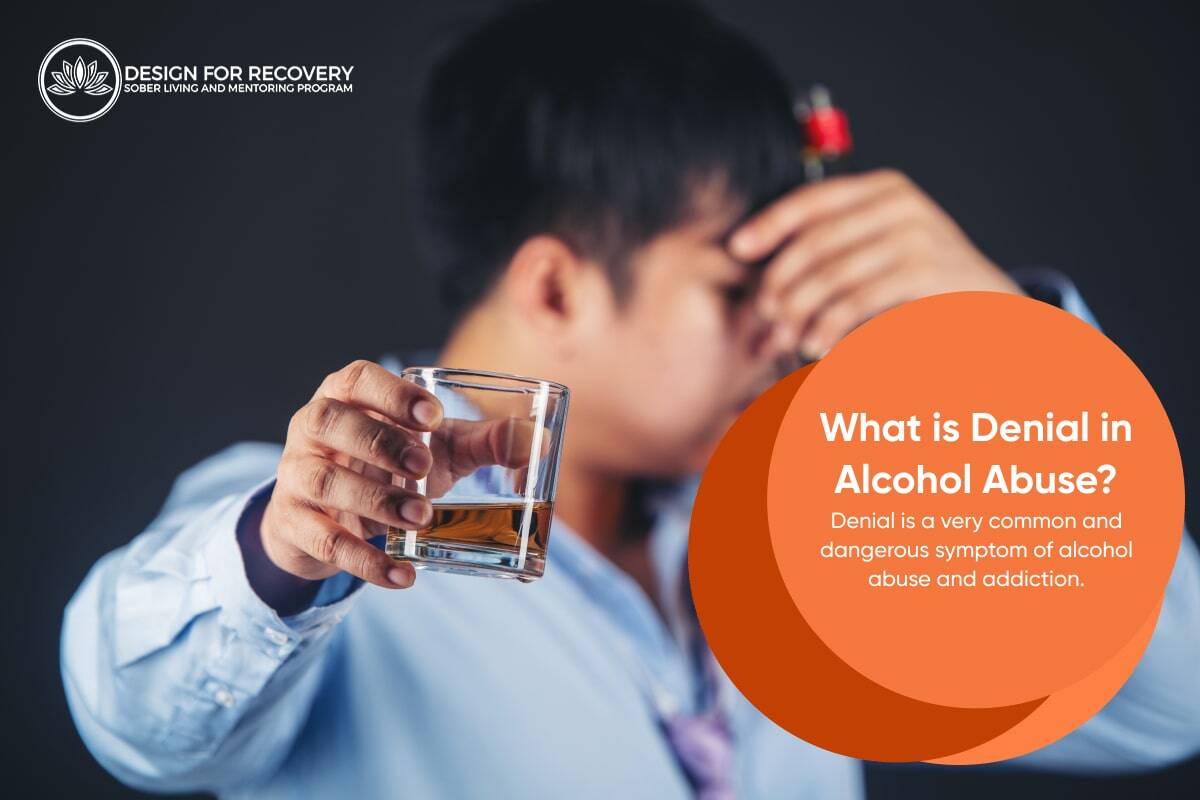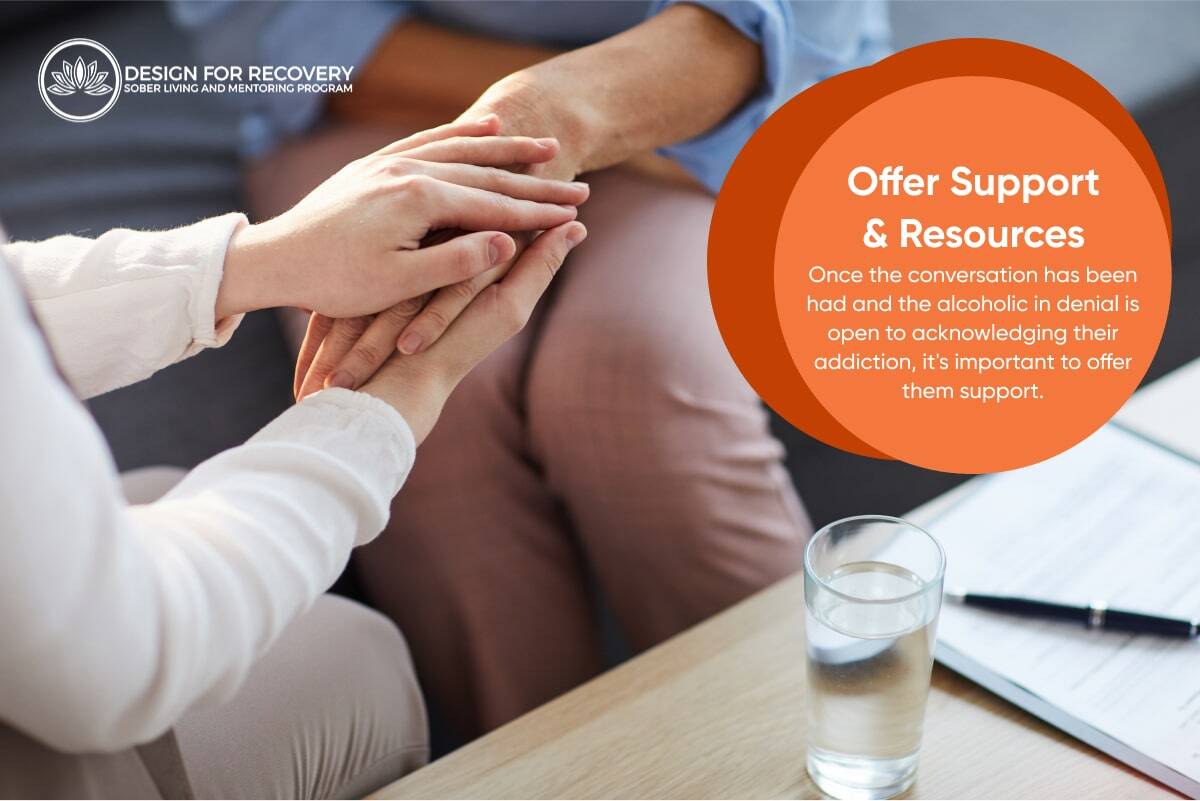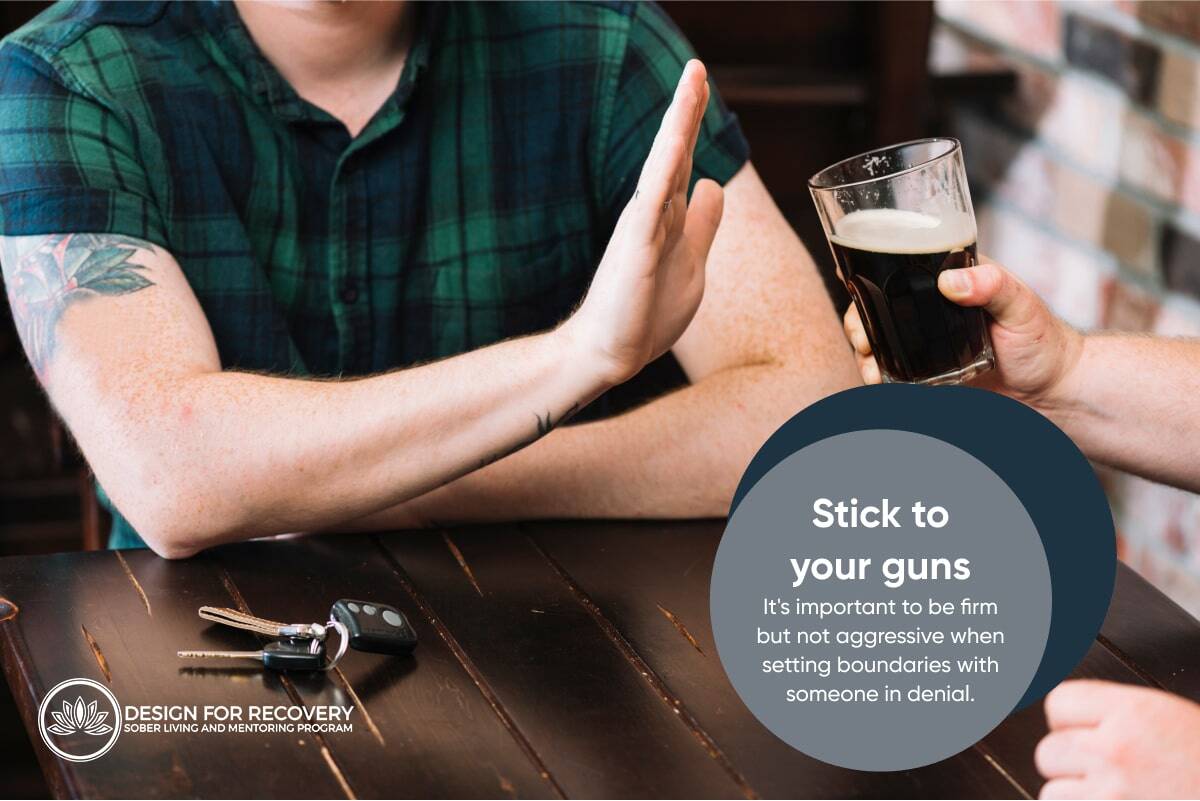Dealing with an alcoholic in denial presents real emotional challenges, yet approaching the situation with empathy, patience, and clear strategies makes a meaningful difference.
The National Institute on Alcohol Abuse and Alcoholism (NIAAA) notes that denial affects up to 75% of those with alcohol use disorder (AUD), serving as a protective barrier against confronting addiction's realities.
Understanding denial's role and practical steps to address it empowers loved ones to encourage positive change while protecting their own well-being.
What is Alcohol Use Disorder?
Alcohol Use Disorder (AUD) is a medical condition that healthcare professionals can diagnose and treat. It’s characterized by excessive drinking, cravings for alcohol, the inability to control one’s drinking habits, and physical alcohol dependence. In severe cases of AUD, individuals may experience withdrawal symptoms when not using alcohol.
The National Institute on Alcohol Abuse and Alcoholism (NIAAA) categorizes AUD into four categories based on the severity of the condition. One sign of AUD is denial and avoidance, resulting from an individual’s fear or shame surrounding their drinking habits.
Individuals with AUD may deny that they have a problem or avoid conversations about their alcohol use to guard themselves from the reality of their situation and any potential consequences of their behavior.
What is Denial in Alcohol Abuse?
Denial is a very common and dangerous symptom of alcohol abuse and addiction. It can prevent an individual from recognizing the need for treatment. Denial also keeps people stuck in unhealthy drinking patterns or prevents them from changing their lifestyles positively.

In extreme cases, denial can lead an individual to completely ignore that they are abusing alcohol, refusing to even acknowledge that there might be a problem. This denial is especially tricky because it prevents the individual from seeking help and makes them vulnerable to further harm. If you’re the parent of adult alcoholics, it’s important to keep an eye on your child.
Call Design for Recovery to Begin Your Healing Journey!
Reach out to our team to discuss sober living options and next steps toward a healthier routine.
What Does Denial Look Like
According to research, denial of alcohol use disorder can look like this:
- Refusing to acknowledge that they have a drinking problem
- Making excuses and rationalizations for their drinking
- Minimizing the severity of their condition
- Insisting that they can handle it on their own
- Blaming other people or circumstances for their situation
- Ignoring the fact that they are abusing alcohol
Helping An Alcoholic in Denial
No one wants to think that their loved one is an alcoholic, let alone accept it. But when alcohol begins to interfere with a person’s life and relationships, the signs can no longer be ignored. It can be difficult for family members and friends of those in denial to help them recognize the problem and take action. Here are a few steps to take:
The First Step: Have the Talk
If you have noticed signs of alcoholism, it’s important that you try and reach out to the person and start an honest conversation about their drinking. When having this conversation, there are several things to consider:
- Timing & Location – Try and talk in private and somewhere the person will feel comfortable. Going for a walk or having a cup of tea at home can be great ways to start a discussion without interruption. When someone feels safe, it’s more likely that they will open up about their drinking.
- Bring Up Examples – If you believe the individual is in denial, bring up specific examples of their drinking behavior to show the negative effects it has had. Pointing out their past actions in a calm and non-judgmental way can help them accept that they may have a problem.
- Be Patient & Kind – It’s key to approach this conversation with patience and kindness. An alcoholic in denial may feel ashamed or defensive, so being gentle and understanding will encourage them to open up.
- Avoid Negative Labels – Words like ‘addict’ and ‘alcoholic’ could be seen as an attack, making the person want to deny their problem even more. Using positive or neutral language such as ‘challenges’ and ‘concerns’ shows that you are coming from a good place with their best intentions in mind.

Contact Design for Recovery Today!
Fill out our quick form to connect with a peer mentor and learn how our sober living community supports accountability, structure, and personal growth in recovery.
Step Two: Offer Support & Resources
Once the conversation has been had and the alcoholic in denial is open to acknowledging their addiction, it’s important to offer them support. According to research, family members and friends who assist during this time are more likely to help a person reach long-term sobriety.
Offering someone resources can also be crucial when helping an alcoholic in denial. Things like therapy, support groups, or alcohol-free activities can be beneficial in helping them keep up with their recovery journey. Letting them know they are not alone and showing your support is important in getting someone to accept help.

Step Three: Set Boundaries and Be Firm
It can be difficult to watch someone you care about suffer, but standing firm and setting boundaries is key when helping an alcoholic in denial. Saying it once won’t always work; alcoholism often requires several conversations before a person will accept help.
When trying to set boundaries with an alcoholic, there are several things to consider:
- Express your concerns – Tell the person how their drinking affects them and those around them. Clear communication will help the alcoholic in denial understand what needs to happen for their recovery.
- Offer alternatives – Suggest Alcoholics Anonymous or other forms of treatment, but remember not to push too hard as that could harm the conversation.
- Stick to your guns – It’s important to be firm but not aggressive when setting boundaries with someone in denial.
By expressing your concerns, offering alternatives, and staying firm, you can help someone in denial get on the road to recovery.

Final Step: Take Care of Yourself
Helping an alcoholic in denial is a difficult but rewarding process. It can be hard to watch someone you care about suffer, and it’s important to take breaks and look after yourself during this time.
Creating healthy boundaries with the alcoholic in denial will help ensure that both of you are supported on their recovery journey. Taking regular time off from helping them can leave you feeling refreshed and more dedicated to helping them in the long run.

Support Through Recovery Transitions
Structured sober living environments like Design for Recovery help men reinforce recovery gains with peer accountability, daily routines, and life skills development. These settings complement clinical treatment by providing the consistency needed during challenging transition phases.
Connect with a peer mentor confidentially or call (424) 242-1130 to discuss transitional housing options that support lasting sobriety.
Strong sober communities make the journey sustainable while loved ones establish healthy boundaries.
- What is Alcohol Use Disorder?
- What is Denial in Alcohol Abuse?
- What Does Denial Look Like
- Helping An Alcoholic in Denial
- The First Step: Have the Talk
- Step Two: Offer Support & Resources
- Step Three: Set Boundaries and Be Firm
- Final Step: Take Care of Yourself
- Support Through Recovery Transitions
Begin Lasting Sobriety Now!
Frequently Asked Questions
Denial helps people protect themselves from the uncomfortable emotions associated with admitting a substance use disorder. It can also make it easier for them to continue their addictive behavior without confronting its consequences. They need professional support to help them correct their drinking behavior and live a healthy life.
Yes, denial is often seen as a symptom of substance abuse addiction. It can be used as a sign that an individual is struggling with substance misuse. This is why professional support is required when you believe someone suffering from drug abuse or excessive alcohol consumption is in alcoholic denial.
Being compassionate and supportive is important if you’re trying to help someone who denies their problem. Encourage them to openly and honestly discuss their feelings and avoid confronting them too directly. Instead, focus on helping them recognize the signs of their addiction and understand the need for treatment. Offer emotional support and help them find professional resources to get their needed help.
When talking to someone in denial about their substance use disorder, it’s important not to be aggressive or judgmental. Instead, focus on listening to their feelings and helping them recognize their addiction’s signs. Show empathy and compassion, and work together to find a treatment solution appropriate for their needs. If they’re a family member, you can suggest family therapy to help their and your mental health.
Carter, J., Sharon, E., & Stern, T. A. (2014). The management of alcohol use disorders: the impact of pharmacologic, affective, behavioral, and cognitive approaches. The primary care companion for CNS disorders, 16(4), 10.4088/PCC.14f01683. https://doi.org/10.4088/PCC.14f01683
Schuckit, M. A., Clarke, D. F., Smith, T. L., & Mendoza, L. A. (2020). Characteristics associated with denial of problem drinking among two generations of individuals with alcohol use disorders. Drug and alcohol dependence, 217, 108274. https://doi.org/10.1016/j.drugalcdep.2020.108274
Ferrari, J. R., Groh, D. R., Rulka, G., Jason, L. A., & Davis, M. I. (2008). Coming to Terms With Reality: Predictors of Self-deception Within Substance Abuse Recovery. Addictive disorders & their treatment, 7(4), 210–218. https://doi.org/10.1097/ADT.0b013e31815c2ded
Kopera, M., Jakubczyk, A., Suszek, H., Glass, J. M., Klimkiewicz, A., Wnorowska, A., Brower, K. J., & Wojnar, M. (2015). Relationship between emotional processing, drinking severity, and relapse in adults treated for alcohol dependence in Poland. Alcohol and alcoholism (Oxford, Oxfordshire), 50(2), 173–179. https://doi.org/10.1093/alcalc/agu099







Written By
David Beasley